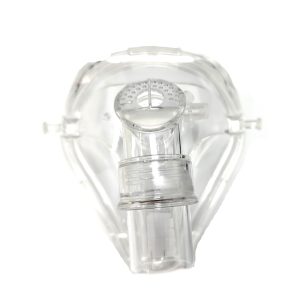Continuous Positive Airway Pressure (CPAP) therapy is a common treatment for obstructive sleep apnea (OSA), a condition characterized by repeated interruptions in breathing during sleep. CPAP therapy involves the use of a CPAP machine that delivers a steady stream of pressurized air through a mask, keeping the airways open. There are different types of CPAP masks, including nasal masks, nasal pillow masks, and full face masks. Each type has its advantages and is suited to different needs and preferences. This essay focuses on the reasons for using a full face CPAP mask, exploring its benefits and suitability for certain patients.
Benefits of a Full Face CPAP Mask
- Effective for Mouth Breathers:
One of the primary reasons for using a full face CPAP mask is for individuals who breathe through their mouth while sleeping. Nasal masks and nasal pillow masks are only effective if the user can maintain nasal breathing throughout the night. Mouth breathing can result from nasal congestion, anatomical variations, or habit. A full face mask covers both the nose and mouth, ensuring that the therapeutic air pressure is delivered effectively regardless of how the patient breathes.
- Reduces Air Leaks:
Air leaks are a common issue with CPAP therapy, potentially reducing the effectiveness of the treatment and causing discomfort. Full face masks tend to have a more secure fit around the nose and mouth, which can help in reducing air leaks. This is particularly beneficial for patients who have high-pressure settings on their CPAP machines, as leaks are more likely at higher pressures.
- Suitable for Nasal Congestion or Obstruction:
Many patients with OSA also suffer from chronic nasal congestion due to allergies, sinus issues, or other medical conditions. A full face mask bypasses the need for nasal breathing, allowing patients to continue their CPAP therapy effectively even when their nasal passages are blocked or congested. This versatility makes full face masks a reliable option throughout the year, irrespective of seasonal allergies or colds.
- Enhanced Comfort for Certain Sleep Positions:
Sleep position can affect the performance and comfort of CPAP masks. Full face masks are often preferred by patients who sleep on their back or side, as they provide stable and secure coverage. While some may argue that full face masks can be bulky, modern designs have improved significantly, offering better comfort and fit.
- Comprehensive Coverage:
A full face mask provides comprehensive coverage, which can be particularly reassuring for patients who experience a sense of suffocation or discomfort with nasal masks. The full coverage helps distribute the air pressure evenly, reducing localized pressure points and enhancing overall comfort.
Situations Where a Full Face CPAP Mask is Ideal
- Severe Sleep Apnea:
Patients with severe sleep apnea often require higher pressure settings to keep their airways open. Full face masks are more effective at handling higher pressures without compromising the seal. This makes them a practical choice for patients who need robust therapy.
- Frequent Mouth Dryness or Drooling:
Mouth dryness is a common side effect for CPAP users who tend to open their mouths during sleep. A full face mask helps mitigate this issue by maintaining the necessary air pressure within the oral cavity, thereby reducing dryness and discomfort. Similarly, for patients who drool during sleep, a full face mask can help manage this issue more effectively than a nasal mask.
- Facial Hair:
Men with facial hair, such as beards or mustaches, often face challenges in achieving a proper seal with nasal masks or nasal pillows. Full face masks generally provide a better seal for individuals with facial hair, ensuring that the CPAP therapy remains effective.
- Claustrophobia or Anxiety:
Some patients feel claustrophobic or anxious when using CPAP masks. Modern full face masks are designed to minimize these feelings, offering features like clear vision fields and softer materials. These enhancements can help reduce anxiety, making it easier for patients to adapt to CPAP therapy.
Challenges and Considerations
While full face CPAP masks offer numerous benefits, there are also some challenges and considerations to keep in mind:
- Size and Bulk:
Full face masks are typically larger and bulkier compared to nasal masks and nasal pillows. This can make them less suitable for patients who move around a lot in their sleep or prefer a less intrusive mask. However, advancements in mask design have led to more lightweight and streamlined options.
- Initial Adjustment Period:
Some patients may need time to adjust to the feel of a full face mask. The comprehensive coverage and larger surface area can initially feel cumbersome. Gradual acclimatization and proper fitting can help mitigate these issues.
- Skin Irritation:
Like all CPAP masks, full face masks can cause skin irritation if not properly fitted or if used without regular cleaning. Ensuring a good fit and maintaining hygiene can help prevent issues such as pressure sores and rashes.
Conclusion
Choosing the right CPAP mask is a critical component of successful CPAP therapy. Full face masks provide several advantages, particularly for mouth breathers, individuals with nasal congestion, and those requiring higher pressure settings. Despite some challenges such as bulkiness and initial adjustment, the benefits of effective air pressure delivery and enhanced comfort make full face CPAP masks a valuable option for many patients with obstructive sleep apnea. By addressing specific needs and preferences, full face masks can significantly improve the quality of sleep and overall health for those undergoing CPAP therapy.



